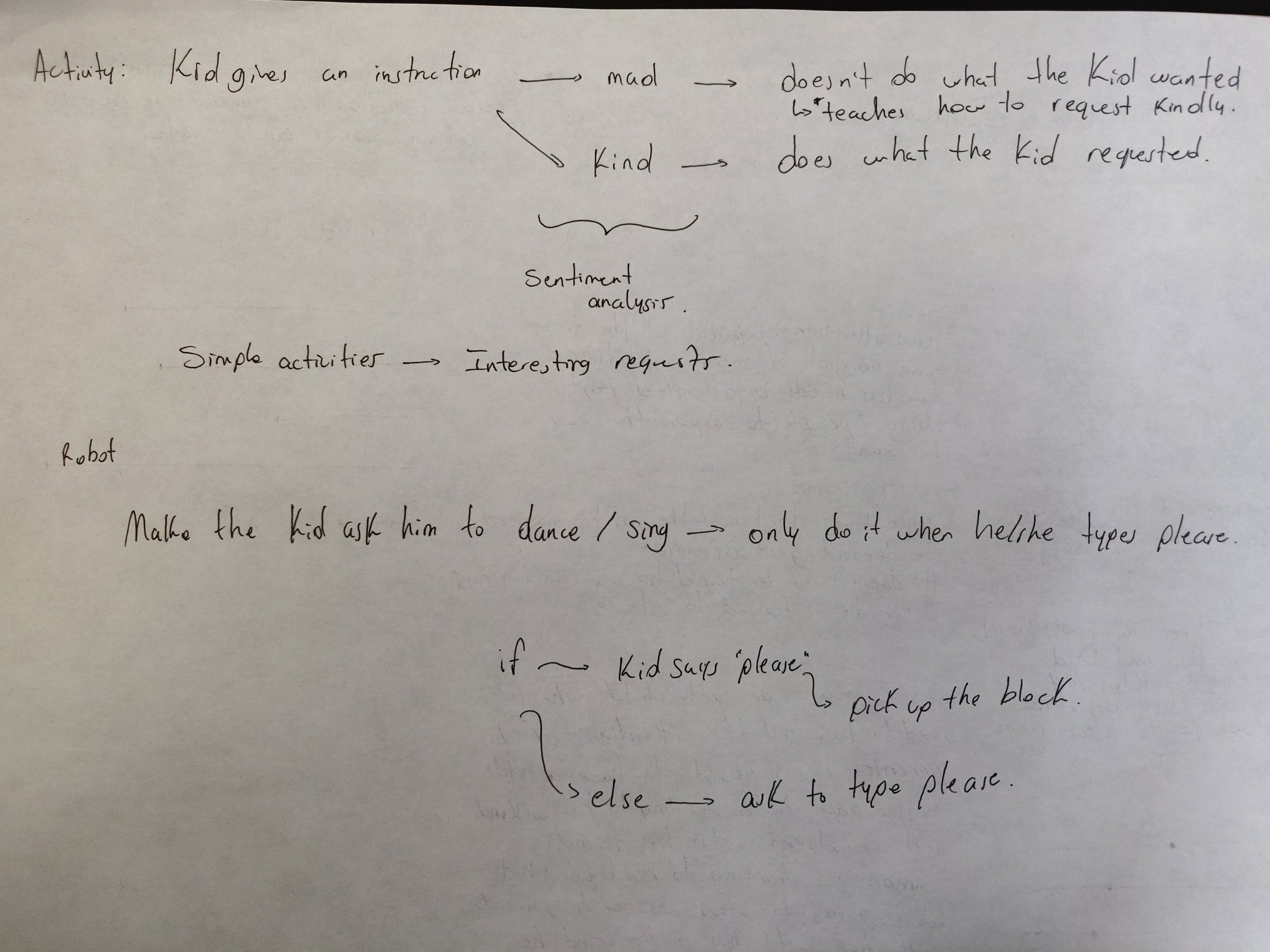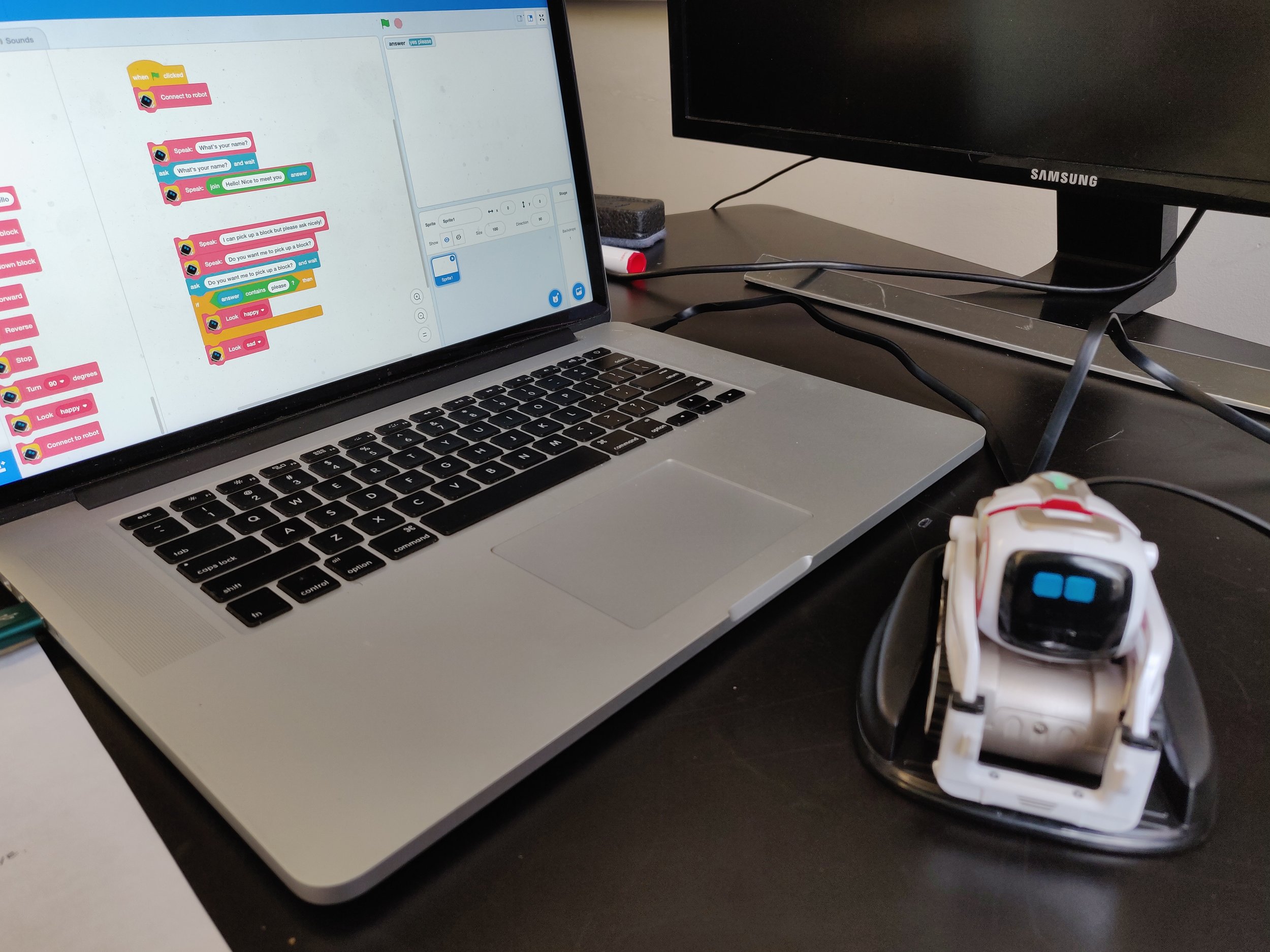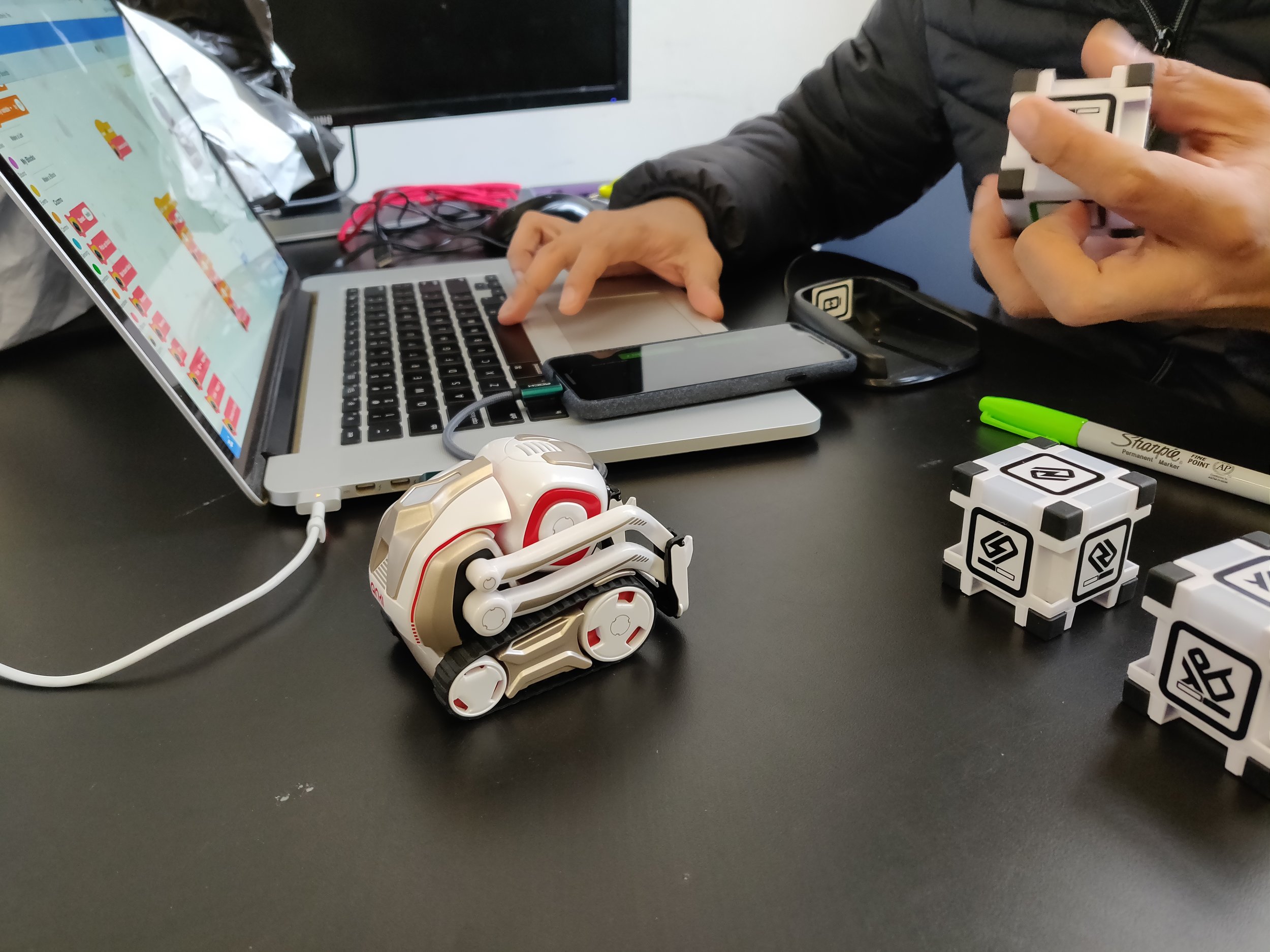For this week’s assignment we had to develop an activity for the Cozmo AI toy. I worked with Arnab in order to create an experience for children that is educational and the same time engaging and fun. We started brainstorming ideas about topics that we wanted to cackle with the interaction . At the end we decided to start working around the subject of teaching kids how to be nice to machines, and therefore how to be kind to people around them (family and friends).
Brainstorm and ideation
The second phase was to define a user persona, in this case we decided to work with a kid in a complicated situation: Simon is an only child who is used to have his parents attention, however he is about to have a little sister. His patience and the way he treats people are changing because of the changes that are happening in his family and we would like to create a game that teaches Simon how to be kind to people around him.
We defined his goals, frustrations and also his personality and what motivates him, all of this in order to understand the state of mind and the needs that we wanted to to cover with the game.
As designers we also defined our main goals to achieve for the kids: To incentive positive social relationships and to balance the need to attain power and control.
User persona
After defining the user and the activity it was time to frame the interaction and decide which functionalities from Cozmo to use in order to generate the impact that we originally designed. We started with a very basic idea of analyzing the sentiment in the way that kids requested Cozmo to do certain actions. If the sentiment was kind then Cozmo would start doing it but if he detected that the sentiment was mad or rude, then he wouldn’t do the interaction and he would instead teach them how to ask for it in a kinder way. The kids then would have another opportunity to try and make the action if they learned the lesson of asking kindly.
The original idea was to use the sentiment detection however as we started prototyping we couldn’t find that building block in the Cognimates extension and therefore we decided to check if the kid typed the word “Please” as a way of checking if the sentiment was kind or not.
Logic and Information Architecture
The next phase was to start building the logic in Cognimates. We found it to be very satisfying and easy to use (once we were able to install and connect the app, connect to the phone and the computer, install the SDK through terminal and then install the Cognimates extension). We inmediatly realized that the setup process took way longer than what we expected and this is a highly technical process that woudn’t allow a lot of parents to do it for their kids to start building their own games with Cognimates.
We started the program by making Cozmo ask for the kid’s name and then say Hello, followed by the kid’s name. The next block was to tell the kid that he could pick up a block if the kid asked nicely. Then we stablished an “If” “else” condition in order to check if the response included the word “Please”.
Something interesting happened during the process, we noticed that the recognition of the word was case sensitive which took us a while to debug, and once we understood what was happening we could continue building the program. For future iterations we would have to consider giving more options to check if the word “Please” was written (even if the case was different or if it was maybe misspelled?).
Programming in Cognimates
Prototyping and Testing
The final result is an interaction where Cozmo greets the kid after asking for their name and then teaches them how to ask for things in a kind and respectful way. We believe that this kind of approaches can be of a very good use for personas like Simon, who are going throw changes in their families and need to learn how to continue being kind, share their toys and his parents attention and also how to be patient toward technology and therefore to people.





